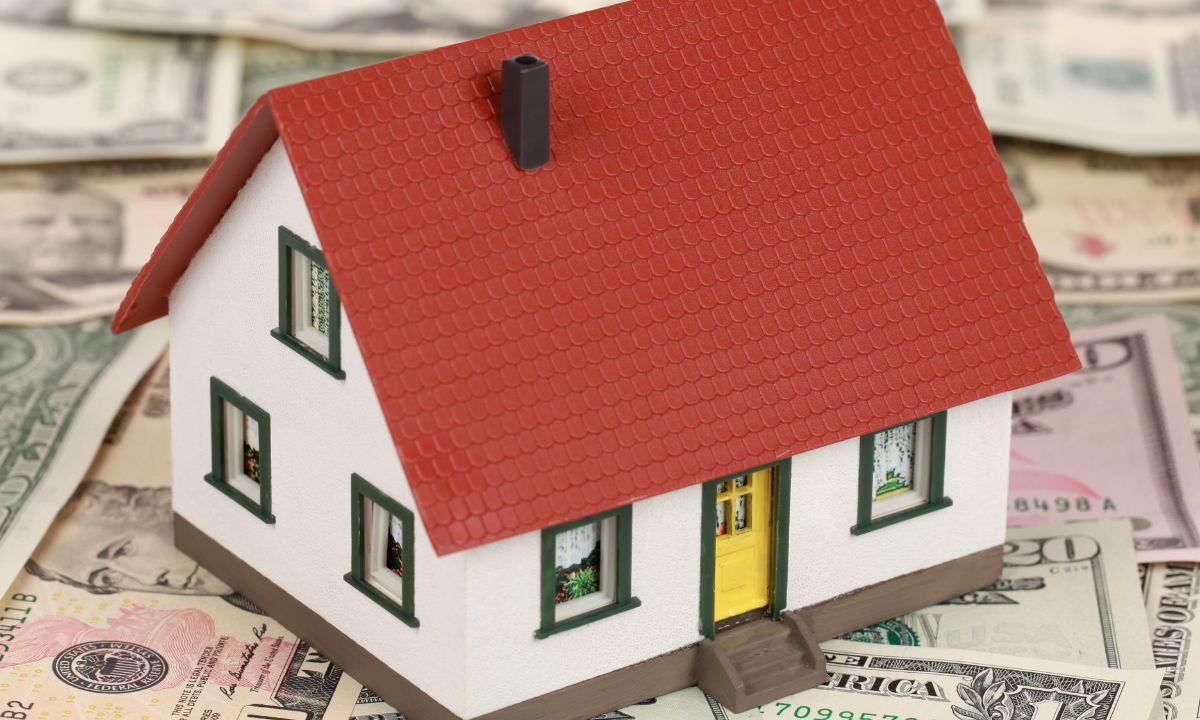 If you plan on retiring soon, you are probably looking at a few options that can get you over the hump. You are probably excited to start a new phase of life. With a record number of people closing in on their retirement age, many are starting to assess their resources to make sure they have enough money to last them for the rest of their lives. If you already own a home, you might be able to tap into your home equity to help you fuel your retirement.
If you plan on retiring soon, you are probably looking at a few options that can get you over the hump. You are probably excited to start a new phase of life. With a record number of people closing in on their retirement age, many are starting to assess their resources to make sure they have enough money to last them for the rest of their lives. If you already own a home, you might be able to tap into your home equity to help you fuel your retirement.
Your Home Has Probably Gone Up In Value
Your house is an investment and now is your opportunity to capitalize on that investment. There is a great chance that the value of your home has significantly increased since you first bought it. Furthermore, if you have been in your house for a long time, your mortgage may have been completely paid off. This means that just about all of your home’s value could be yours to keep. Your house could be worth hundreds of thousands of dollars, which you can put towards your retirement.
How To Use Your Home Equity For Your Retirement
Of course, you still need a place to live, but there are ways for you to tap into your home equity for your retirement. If you have children who have already moved out, you might be ready to downsize. As a result, you could sell your house and use the cash from the sale of your house to purchase a smaller home. Then, you can use the money left over to fund your retirement. It might not be enough to cover your retirement completely, but it could be enough to get you over the hump if you are wondering when you can retire.
Consider The Implications Of Selling Your Home
When you sell your home, there is a chance that you may have to pay taxes on the capital gains stemming from the value of your home. On the other hand, you might be able to shield some of those gains if you use the money to buy another house quickly. You should reach out to a professional who can help you understand the tax implications of selling your home.
 Are you tired of pouring your hard-earned money into rent payments every month, only to see it vanish into thin air? Have you ever considered that homeownership might be the key to escaping the rent trap and building wealth for your future? We will explore how homeownership can be a powerful wealth-building tool compared to renting.
Are you tired of pouring your hard-earned money into rent payments every month, only to see it vanish into thin air? Have you ever considered that homeownership might be the key to escaping the rent trap and building wealth for your future? We will explore how homeownership can be a powerful wealth-building tool compared to renting. Real estate investing has long been considered a lucrative venture, but the common misconception is that it requires a substantial amount of capital to get started. In reality, numerous strategies allow beginners to dip their toes into the real estate market with minimal funds. We will guide aspiring investors on how to start their real estate journey with little money and build a solid foundation for long-term success.
Real estate investing has long been considered a lucrative venture, but the common misconception is that it requires a substantial amount of capital to get started. In reality, numerous strategies allow beginners to dip their toes into the real estate market with minimal funds. We will guide aspiring investors on how to start their real estate journey with little money and build a solid foundation for long-term success. If you are getting ready to retire, you need to make sure you have income to support yourself during your golden years. One popular option is a reverse mortgage, and you can use it to supplement the benefits you receive through Social Security. On the other hand, you may have also heard about a home equity conversion mortgage. What are the differences between them, and which one is right for you?
If you are getting ready to retire, you need to make sure you have income to support yourself during your golden years. One popular option is a reverse mortgage, and you can use it to supplement the benefits you receive through Social Security. On the other hand, you may have also heard about a home equity conversion mortgage. What are the differences between them, and which one is right for you? Buying a home is a dream that many people want to make come true. At the same time, many people dream of buying a second home. Perhaps you are looking for a rental property. Maybe you are looking for a vacation home. Regardless, you might be wondering how you can come up with the necessary cash to finance this dream. You might even be thinking about tapping into the equity in your current home to make that happen. It could be your down payment for your second house, but what do you need to know?
Buying a home is a dream that many people want to make come true. At the same time, many people dream of buying a second home. Perhaps you are looking for a rental property. Maybe you are looking for a vacation home. Regardless, you might be wondering how you can come up with the necessary cash to finance this dream. You might even be thinking about tapping into the equity in your current home to make that happen. It could be your down payment for your second house, but what do you need to know? If you plan on retiring soon, you are probably looking at a few options that can get you over the hump. You are probably excited to start a new phase of life. With a record number of people closing in on their retirement age, many are starting to assess their resources to make sure they have enough money to last them for the rest of their lives. If you already own a home, you might be able to tap into your home equity to help you fuel your retirement.
If you plan on retiring soon, you are probably looking at a few options that can get you over the hump. You are probably excited to start a new phase of life. With a record number of people closing in on their retirement age, many are starting to assess their resources to make sure they have enough money to last them for the rest of their lives. If you already own a home, you might be able to tap into your home equity to help you fuel your retirement. Equity is a powerful tool. As homeowners pay off the mortgage, the amount of equity in the house grows. As the house appreciates in value, homeowners accrue even more equity. Then, homeowners can tap into this equity for a variety of purposes. What are a few of the ways homeowners might be able to use this equity?
Equity is a powerful tool. As homeowners pay off the mortgage, the amount of equity in the house grows. As the house appreciates in value, homeowners accrue even more equity. Then, homeowners can tap into this equity for a variety of purposes. What are a few of the ways homeowners might be able to use this equity?  Many people dream of retiring one day, and there are numerous assets that contribute to that retirement goal. Social security, pension plans, and savings accounts have traditionally provided assets people use to enjoy their retirement; however, this traditional plan ignores one of the most valuable assets. Owning a home can contribute significantly to someone’s retirement goals; however, it is important to have a firm plan in place to make those retirement dreams come true. There are several ways a home can play an important role in that plan.
Many people dream of retiring one day, and there are numerous assets that contribute to that retirement goal. Social security, pension plans, and savings accounts have traditionally provided assets people use to enjoy their retirement; however, this traditional plan ignores one of the most valuable assets. Owning a home can contribute significantly to someone’s retirement goals; however, it is important to have a firm plan in place to make those retirement dreams come true. There are several ways a home can play an important role in that plan.  Anyone who has paid attention to the TV recently has likely seen a lot of commercials for something called a reverse mortgage. For those who might not know, a reverse mortgage is exactly that. In this option, people receive monthly payments from a lender in exchange for equity in their homes. In essence, this functions as an annuity.
Anyone who has paid attention to the TV recently has likely seen a lot of commercials for something called a reverse mortgage. For those who might not know, a reverse mortgage is exactly that. In this option, people receive monthly payments from a lender in exchange for equity in their homes. In essence, this functions as an annuity. Most people can’t pay for a home outright, so they finance it with a mortgage loan. 30-year mortgages are more conventional, but they also come with a significant interest price tag.
Most people can’t pay for a home outright, so they finance it with a mortgage loan. 30-year mortgages are more conventional, but they also come with a significant interest price tag.